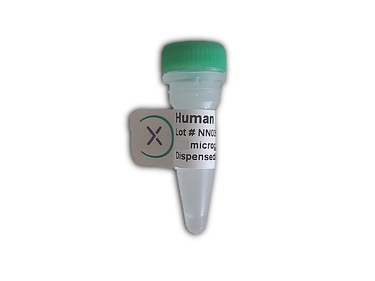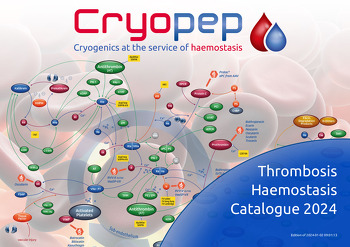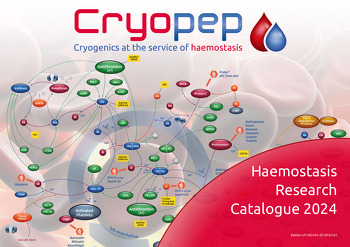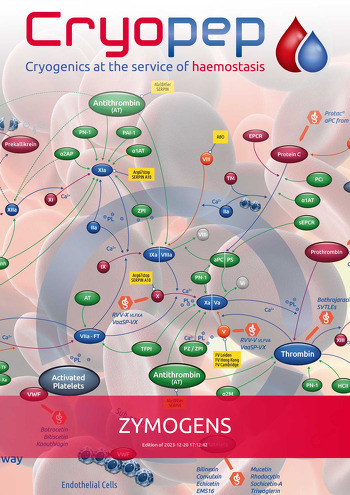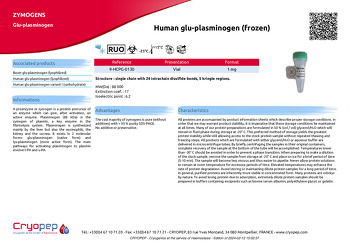A proenzyme or zymogen is a protein precursor of an enzyme which can give, after activation, an active enzyme. Plasminogen (88 kDa) is the zymogen of plasmin, a key enzyme in the fibrinolysis system. Plasminogen is synthesized mainly by the liver but also the eosinophils, the kidney and the cornea. It exists in 2 molecular forms: glu-plasminogen (native form) and lys-plasminogen (more active form). The main pathways for activating plasminogen to plasmin involve t-PA and u-PA.
All proteins are accompanied by product information sheets which describe proper storage conditions. In order that we may warrant product stability, it is imperative that these storage conditions be maintained at all times. Many of our protein preparations are formulated in 50 % (vol / vol) glycerol/H₂O which will remain in fluid phase during storage at -20° C. This preferred method of storage yields the greatest protein stability while still allowing access to the stock protein sample without repeated thawing and freezing steps. All products which are formulated with either glycerol/H₂O or aqueous buffer are delivered in microcentrifuge tubes. By briefly centrifuging the samples in their original containers, complete recovery of the sample at the bottom of the tube will be accomplished. Temperatures lower than -30° C should be avoided in order to prevent a phase transition. When preparing to make a dilution of the stock sample, remove the sample from storage at -20° C and place on ice for a brief period of time (5-10 min). The sample will become less viscous and thus easier to pipette. Never allow protein solutions to remain at room temperature for excessive periods of time. Elevated temperatures may enhance the rate of protein degradation. Avoid storing or maintaining dilute protein samples for a long period of time. In general, purified proteins are inherently more stable in concentrated form. Many proteins are «sticky» by nature. To avoid losing protein due to adsorption, extremely dilute protein samples should be prepared in buffers containing excipients such as bovine serum albumin, polyethylene glycol, or gelatin.
The vast majority of zymogens is pure (without additives) with > 95 % purity SDS-PAGE.
No additive or preservative.






